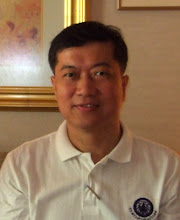The Kitchen Sink School of Speechwriting
Your boss needs to give a speech at an international conference. The problem is that there are more than 100 countries participating, which means -- no, not that there will be a lot of hot air -- that each speaker will be allowed only 7-8 minutes.
What you need is a concise message that you can develop in the time allotted. But chances are that, since speeches tend to be committee efforts, you -- as the poor sap responsible for putting up the first draft -- will get a lot of ideas thrown at you. When those people are all your betters, in seniority at least, you will be under pressure to include all their ideas in your draft.
Your mission, should you decide to accept it, is to put it all together and make sense of the whole mix.
For a regular 20-minute speech, you can get away with a laundry list structure, in which you devise some high concept to serve as the "chapeau" for the speech. But for a seven-minute address, that's not easy, because the laundry list will look too much like a laundry list.
One solution would be to come up with a killer high concept, and use all those ideas as illustrations of your main point. Tough, I know.
Another way is to cut things out that don't fit your argument. Much of the time, the people who throw those ideas at you won't remember what they said.
So, happy writing, and may you never face writer's block!

